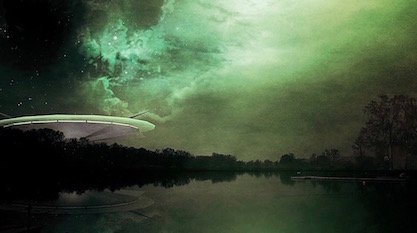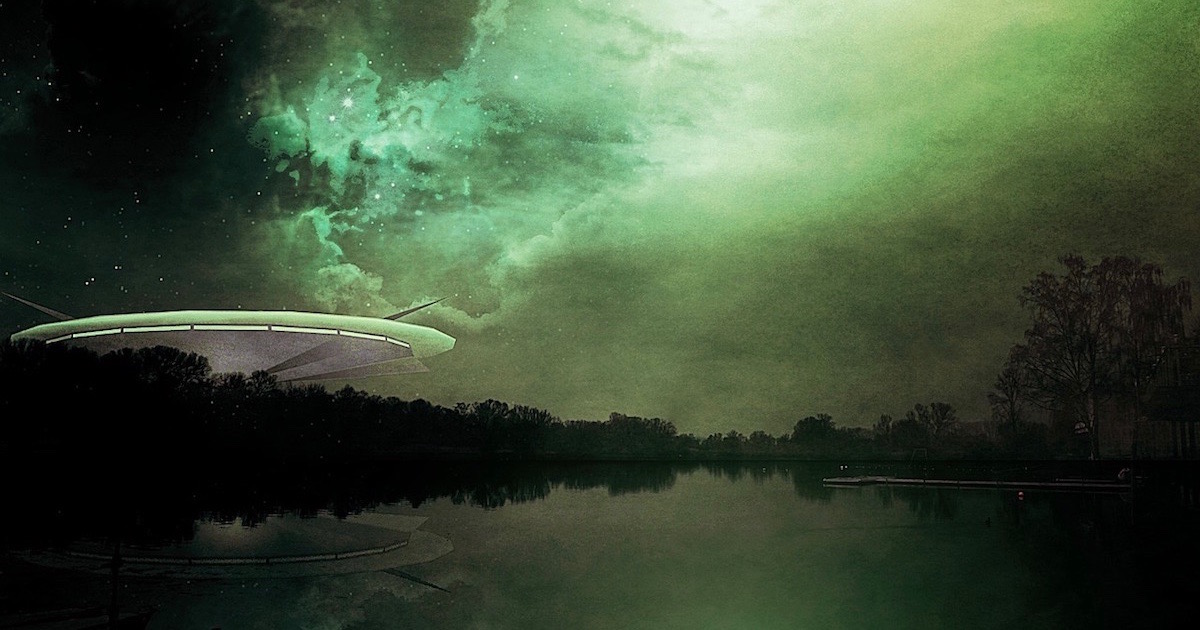 Faith & Science
Faith & Science
 Physics, Earth & Space
Physics, Earth & Space
Evidence of ETs? Delightful! Bring It On


I probably should regret the time I spent on yet another vacuous article musing on what would happen if we encountered alien life forms. This one is from Scientific American and it reports, “Most Americans would probably be thrilled to learn extraterrestrials (intelligent or not) exist,” while “Other nationalities beg to differ.”
Yasemin Saplakoglu argues that reactions to meeting ETs could be shaped by evolution, or evolution plus culture, but definitely by evolution. She quotes Seth Shostak of SETI.
Perhaps it might make sense for our brains — tuned by millions of years of evolution to be wary of predators — to freak out over immensely powerful alien beings arriving on our cosmic doorstep from parts unknown. [Emphasis added.]
She cites neuroscientist Cornelius Gross:
Gross thinks we would probably first try to understand it, a reaction that can be interpreted as yet another ancient, evolutionarily sculpted defense system aimed at gaining control of a novel situation. There would probably be some positive responses and some negative ones, but they will all be “based on humans’ need to control their environment and make sure things are not threatening to them,” he says.
So if we freak out or calmly seek to investigate and gain objective understanding, either is comfortably predicted by evolution. On the other hand, maybe evolution will bow to experience. It’s all good:
Our brains are wired with ancient circuits to defend us against predators. But as we navigate through the world, experience can also shape what we come to accept or to fear and how open we are to novelty….
“Culture may be a strong determinant of how we respond to novelty,” says Cornelius Gross.
Never fear: whatever our purely hypothetical response to a purely hypothetical event, it can be reconciled with evolution, the unfalsifiable theory. You know what? One reason I would be among those thrilled by the discovery of alien life is that we wouldn’t have to read any more trumped up articles speculating about how we would respond to the discovery of alien life.
In this genre, a subgenre tells religious people how they might be rocked, or definitely would be rocked, even if the event turned out to be ultimately survivable for faith.
- “The discovery of alien life may be close. How will religion survive it?” (The Guardian)
- “If we made contact with aliens, how would religions react?” (BBC)
- “How Will Our Religions Handle the Discovery of Alien Life?” (Nautilus)
- “Would Finding Aliens Shatter Religious Beliefs?” (Space.com)
- “Which Religions Would Have The Hardest Time Accepting Alien Life?” (Gizmodo)
- “Would Finding Alien Life Change Religious Philosophies?” (Live Science)
Again, I don’t know, as no one can, but I think I would be delighted by solid indications of life on another world. I do know that, unless you count UFOs, there is absolutely zero scientific evidence of ETs and zero evidence that finding them lies over a time horizon we can anticipate reaching anytime soon, or ever. It’s remarkable how zero knowledge fuels endless speculation. In fact, religious believers may be the only demographic with a credible reason to expect life elsewhere, assuming you consider the Bible credible. Psalm 145:13 addresses God as the Lord of worlds — “Your kingdom is a kingdom of all worlds,” or “all universes” (kol olamim). A kingdom implies inhabitants.
The real question might be what happens to materialism if ETs are never found? How long can they keep churning out the same articles, in the absence of any substantiation for anything they say? Can it go on indefinitely, or will the genre eventually exhaust itself?
Image credit: tombud, via Pixabay.
